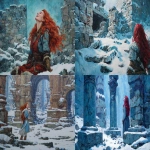Explore the Best AI Image Gallery

Quantum Leaps in Creativity: Exploring the Impact of Quantum Computing on Art and Design
The realm of creativity is poised for a paradigm shift with the advent of quantum computing. This revolutionary technology, harnessing the principles of quantum mechanics, promises to unlock unprecedented possibilities for artists, designers, and innovators alike.
Unveiling New Creative Frontiers
Quantum computers, unlike their classical counterparts, leverage the superposition and entanglement of qubits to perform calculations at an exponential speed. This inherent power presents a vast canvas for creative exploration:
- Generative Art: Quantum algorithms can generate novel and intricate artistic patterns, designs, and compositions, pushing the boundaries of aesthetic expression.
- Interactive Experiences: Imagine immersive art installations that respond to viewer emotions or real-time environmental data, powered by quantum-enhanced simulations and analysis.
- Personalized Creativity: Quantum computing could enable tools that personalize artistic creations based on individual preferences, fostering a more intimate and engaging creative process.
Beyond the Brushstroke: Practical Applications
The impact of quantum computing extends beyond artistic domains. It has the potential to revolutionize design processes in various fields:
- Materials Science: Quantum simulations can accelerate the discovery of novel materials with unique properties, leading to groundbreaking advancements in architecture, fashion, and technology.
- Product Design: Optimize product designs for efficiency, durability, and aesthetics by leveraging quantum algorithms to analyze complex parameters and generate optimal solutions.
- Urban Planning: Quantum computing can assist in creating smarter cities by simulating traffic flow, optimizing resource allocation, and enhancing public safety.
Navigating the Ethical Landscape
As with any transformative technology, quantum computing raises ethical considerations that require careful consideration:
- Bias and Fairness: Quantum algorithms can inherit biases present in training data, potentially leading to unfair or discriminatory outcomes in creative applications.
- Intellectual Property: The ease of generating novel content using quantum tools raises questions about authorship, copyright, and the ownership of intellectual property.
- Access and Equity: Ensuring equitable access to quantum computing resources is crucial to prevent a widening digital divide and promote inclusive innovation in the creative sector.
The Quantum Future of Creativity
Quantum computing is poised to revolutionize the creative industry, empowering artists, designers, and innovators to push boundaries and explore uncharted territories. While navigating ethical challenges is paramount, the transformative potential of this technology promises a future where creativity knows no bounds.
The coming years will witness an explosion of quantum-powered tools and applications, shaping the artistic landscape in profound ways. Embracing this technological evolution while fostering responsible innovation will be key to unlocking the full creative potential of the quantum era.


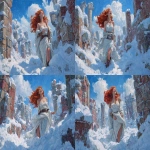






](https://images.ai-img.art/thumbnails/150/8aa2589b60ffe3dde30a265a6cac8d4ae71901c658ca48c4344f21436de413fb.webp)


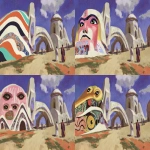

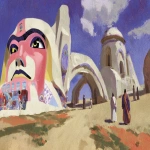








](https://images.ai-img.art/thumbnails/150/00df9b84a8818b4130bce9ca10c0c67ff2bc8952ca0fb5012dafc9b1c6378e67.webp)
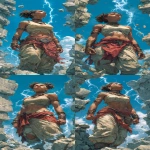






](https://images.ai-img.art/thumbnails/150/bc5b40f43007c984885fc5b035e0fd81d75554a8730895e067565a6b7050524b.webp)

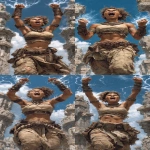

](https://images.ai-img.art/thumbnails/150/33a7122c923d87ba243a3afa0b16a930f1603be27b8ac938ff7f4ae4f5140553.webp)



](https://images.ai-img.art/thumbnails/150/39c6bd41a1282b304a06fb11053bd009750b3879060719b1adb959228dbcd41a.webp)






